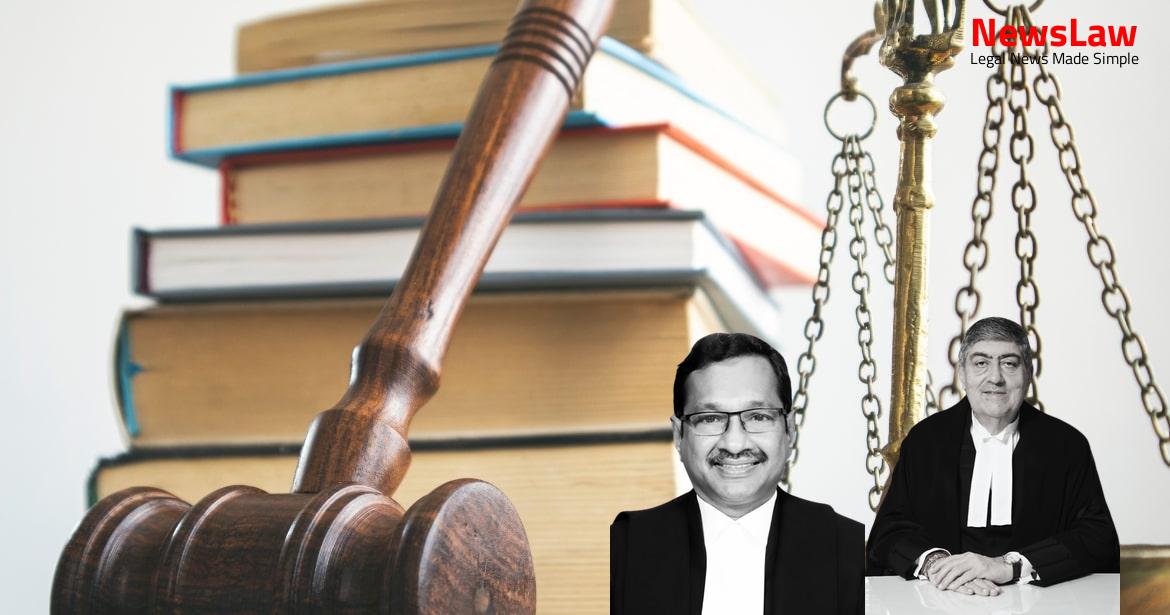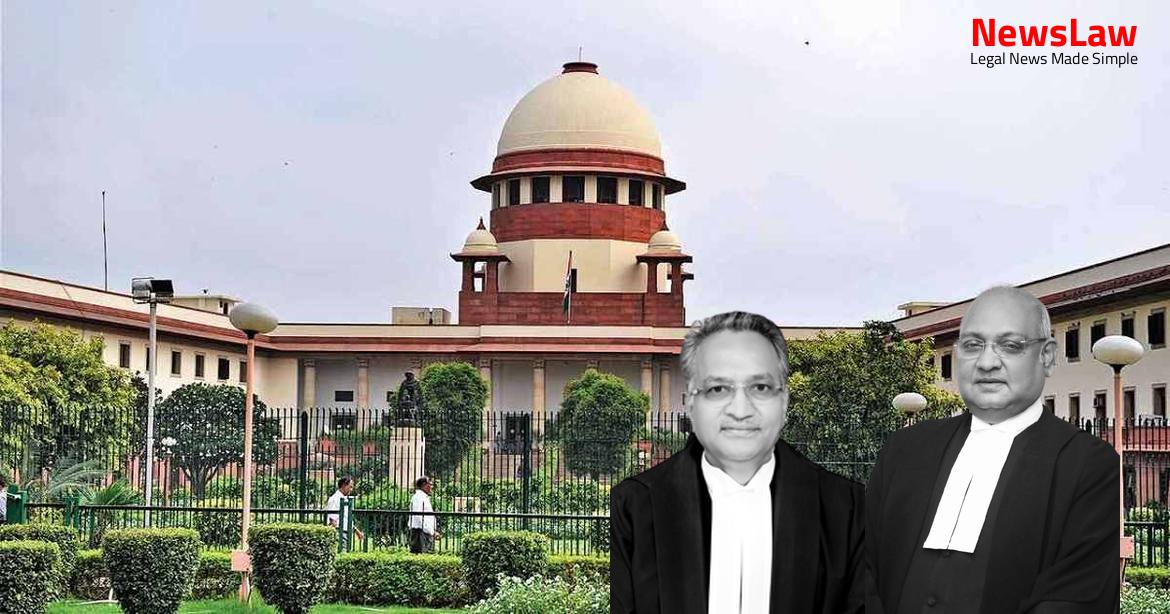Explore the nuanced interpretation of the Limitation Act in special laws as discussed in a recent court judgment. The analysis focuses on the applicability of Section 5, emphasizing how special laws may implicitly exclude its provisions, leading to dismissal based on strict timelines. This summary sheds light on the critical role of statutory rights and time limits in legal proceedings, offering a deeper understanding of the intricacies of the law.
Facts
- Kaushalya Rani filed an appeal against the acquittal of Gopal Singh under Section 135(1)(b) of the Customs Act, 1962.
- The appeal was filed beyond the 60-day period prescribed under the old CrPC.
- A delay condonation application was submitted with the appeal as it was delayed by 72 days.
- An application was made by Gopal Singh to the High Court under Section 482 of CrPC to recall the order on the grounds that Section 5 of the Limitation Act would not apply to an appeal against acquittal.
- The Punjab & Haryana High Court dismissed the appeal on the basis of limitation.
- Kaushalya Rani’s case involved allegations of deceit by Gopal Singh under Sections 493 and 496 of the IPC.
- The Delhi High Court later dismissed the application for recall filed by the appellant without providing reasons.
- The specific part of the judgment (RLC) focused on the evidence presented by the Directorate of Revenue Intelligence regarding the accused’s involvement in the alleged illegal activities.
- The trial court’s decision to acquit the accused was based on the evaluation of this evidence and the lack of substantial proof linking the accused to the charges.
- The High Court appeal filed by the Directorate of Revenue Intelligence aimed to challenge this decision and present additional arguments or evidence in support of the prosecution’s case.
Also Read: Legal Analysis of Slum Rehabilitation Scheme and Private Arrangements
Arguments
- Mr. Vijay Kumar Aggarwal, learned counsel relied on two cases: Hukumdev Narain Yadav v. Lalit Narain Mishra and Gopal Sardar v. Karuna Sardar.
- Both cases dealt with special laws having prescribed limitation periods.
- Hukumdev Narain Yadav related to an Election matter under the Representation of People’s Act, 1951, with a limitation of 45 days for filing an Election Petition.
- Gopal Sardar involved the right of pre-emption under Section 8 of the West Bengal Land Reforms Act, 1955, with three months limitation for a bargadar and four months for a raiyat to apply for pre-emption.
- The counsel also cited the judgment in Kaushalya Rani v. Gopal Singh (1964) 4 SCR 982 to support his argument.
Also Read: Scope of Judicial Scrutiny in Referral to Arbitration
Analysis
- The applicability of Section 5 of the Limitation Act depends on whether it is expressly excluded by a special or local law.
- The Limitation Act, 1963 allows for the application of Section 5 unless expressly excluded.
- Cases like ‘Kaushalya Rani’ dealt with the old laws where Section 5 was excluded by specific provisions.
- In contrast, under the new Limitation Act, Section 5 can be invoked unless expressly excluded.
- The judgment in ‘Gopal Sardar’ highlighted the importance of statutory rights and strict timelines in certain cases.
- The Act under Section 14-‘O’ and Section 19 prescribed that Section 5 of the Limitation Act applies to appeals.
- The exclusion of Section 5 under special laws, like in cases discussed, leads to dismissal if timelines are not met.
- Court’s interpretation has emphasized the need to evaluate if special laws implicitly exclude the provisions of the Limitation Act.
- Under the Limitation Act, 1963, Section 5 can extend the limitation period if sufficient cause is shown.
- In cases like appeal from acquittal, where special laws don’t expressly exclude Section 5, it can be invoked for condonation of delay.
- Section 29(2) of the new Limitation Act clarifies its applicability in determining the limitation period under special laws.
- Section 8 of the West Bengal Land Reforms Act, 1955 allowed a ‘raiyat’ the right of pre-emption to transfer land of a co-sharer within 4 months of the cause of action.
- In the case of Gopal Sardar, the issue of limitation period under the West Bengal Land Reforms Act, 1955 was discussed, along with the applicability of Section 5 of the Limitation Act.
- The provisions of Section 3 of the Limitation Act were highlighted, stating that suits, appeals, or applications filed after the prescribed period shall be dismissed.
- Reference was made to the Hukumdev Narain Yadav case concerning election laws as a different category in terms of limitation periods.
- The Court mentioned the distinction made by the Limitation Act, 1963 in Section 29(2) as compared to the old Limitation Act of 1908.
- Section 86(1) of the election statute mandates the dismissal of an election petition filed beyond 45 days.
- Section 5 of the Limitation Act does not apply to special laws with prescribed time limits, unless specified in the special statute.
- The language used in prescribing the time limit is a crucial factor.
- Section 29(2) of the old Limitation Act and Section 29(2) of the Limitation Act of 1963 outline the applicability of Section 5 of the Acts in special or local laws.
- The crucial difference lies in the applicability of Section 5 in the two Acts, with the 1963 Act allowing for its application unless expressly excluded by the special law.
- A comparative analysis of the provisions of Section 29(2) in the old and new Limitation Acts highlights the changes in the applicability of Section 5 based on the special or local law.
Also Read: Standing Orders vs CCA Rules: A Legal Analysis
Case Title: MOHD ABAAD ALI Vs. DIRECTTORATE OF REVENUE PROSECUTION INTELLIGENCE (2024 INSC 125)
Case Number: Crl.A. No.-001056-001056 / 2024



